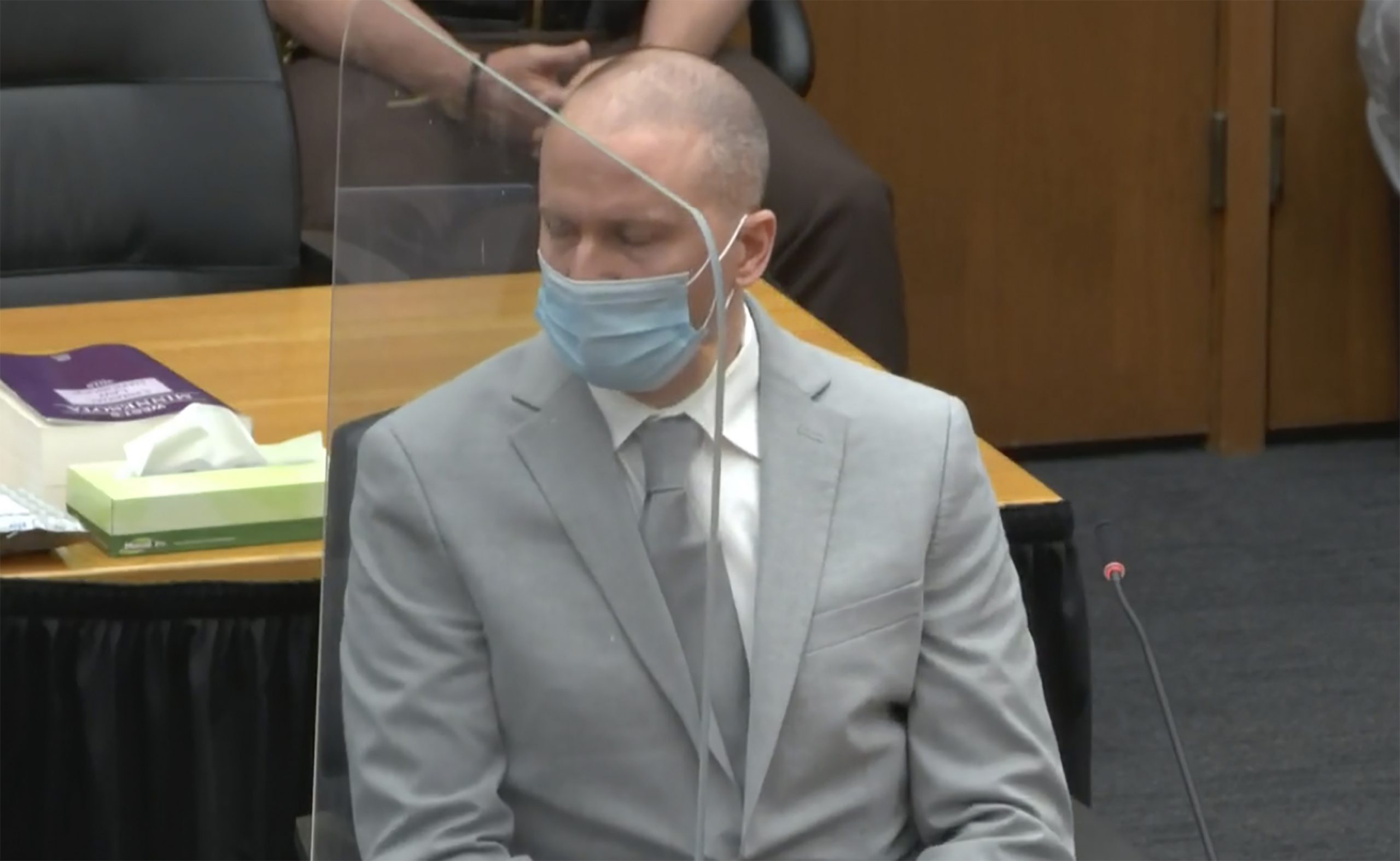Disgraced ex-police officer Derek Chauvin was sentenced to 21 years in federal prison Thursday for violating the civil rights of George Floyd, whose 2020 death sparked a nationwide outcry and a summer of protests.
The former Minneapolis police officer, who is already jailed on state murder charges for his role in the death of Floyd, received his sentence in federal court on two counts of violating Floyd‘s civil rights after he agreed to a sentence of 20 to 25 years in his December plea to a federal charge in Floyd’s killing.
Directing a statement to Floyd’s family, Chauvin said he wished Floyd’s children “all the best in their life” and that they have “excellent guidance in becoming good adults,” though he did not issue a direct apology. He also said he recognizes the difficulty for the court in a “politically charged environment” and that the court strives for fairness.
FEDERAL JUDGE ACCEPTS PLEA DEAL FOR DEREK CHAUVIN IN CIVIL RIGHTS CASE

U.S. District Judge Paul Magnuson made the final decision to have Chauvin serve 245 months in prison, knocking off seven months from the initial 252 months due to his time served already.
Before the sentencing, Magnuson told Chauvin: “I really don’t know why you did what you did, but kneeling on someone until they expire is simply wrong, and for that, you will be punished.”
Chauvin’s defense attorney Eric Nelson asked for a “low end” 20 years in prison, saying his client accepts responsibility for his actions and that he is not at risk for a repeat offense. He already received a sentence of 22.5 years in prison from a state court in June 2021 for the murder of Floyd.
Prosecutors wanted a full 25 years, arguing Chauvin’s actions were cruel and unnecessary. Those sentiments were also expressed by Floyd’s brother, Philonise Floyd, who gave a passionate plea for the maximum sentence.
“My brother was murdered in broad daylight with a knee to his neck for nine minutes,” he said Thursday.
Other members of Floyd’s family, including his girlfriend, Courteney Ross, were present in court for the sentencing Thursday.
“Mr. Chauvin, I do not hate you. I am still working to forgive you,” Ross said Thursday.
She also said she “fell to the ground in devastation” when she learned of Floyd’s death, adding, “It is difficult to explain what was taken from me. … Floyd was the man I loved. … I miss laughing with him,” according to CBS News.
A May plea agreement, accepted by Magnuson, sought to extend Chauvin’s sentence while potentially relocating him to more favorable conditions in federal prison.
By entering his federal plea, the former officer admitted for the first time that he kept his knee on Floyd’s neck despite Floyd repeating the statement “I can’t breathe” several times before he became unresponsive during the May 2020 arrest.
Chauvin, a white man, pleaded guilty to federal charges in December that he abused his power to violate the civil rights of Floyd, a black man, thereby avoiding a possible life sentence in prison.
During the hearing last year, he addressed the Floyd family and said: “I want to give my condolences to the Floyd family. There is going to be some other information in the future that would be of interest, and I hope things will give you some peace of mind.”
While Chauvin must serve the federal sentence at the same time as the state one, which will render him a longer stay behind bars than he would have faced with the state sentence alone, experts say the deal could mean safer conditions in the federal system.
The ex-officer may risk encountering inmates in Minnesota state prison whom he previously arrested or investigated. Although he may be viewed as a former law enforcement officer, a sentence in federal prison may reduce the risk of running into inmates he directly encountered during his career.
Chauvin would also have more allowances to work and participate in programming and chances to move about the facility.

CLICK HERE TO READ MORE FROM THE WASHINGTON EXAMINER
The video showed Chauvin kneeling on Floyd’s neck for more than nine minutes during an arrest in Minneapolis in May 2020. Floyd repeatedly said he couldn’t breathe before losing consciousness and was later pronounced dead.
The events of that day spurred a wave of protests in Minneapolis and around the country against police brutality and racial inequalities. The three other former officers present during the arrest, Thomas Lane, J. Alexander Kueng, and Tou Thao, were convicted of violating Floyd’s civil rights in February and are awaiting sentencing.

